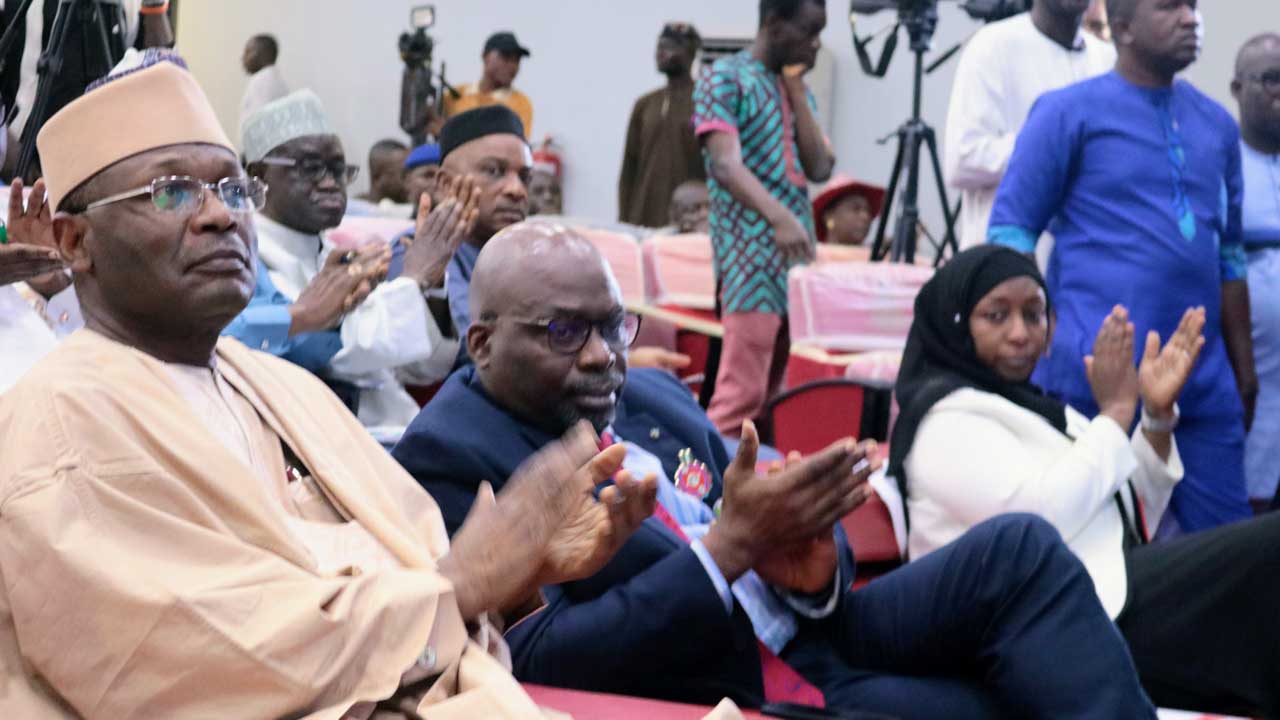
elections in Abuja… yesterday. PHOTO: LUCY LADIDI ATEKO
Independent National Electoral Commission (INEC), yesterday, said many politicians are unhappy with current efforts by the commission and security agencies to stop vote buying during the 2023 polls and are expected to fight back.
The commission said though it is not going to be easy to root out the negative influence of money on the elections, it is determined to tackle it.
INEC chairman, Prof. Mahmood Yakubu, disclosed this at a one-day stakeholders’ summit on addressing the influence of money in the general elections.
He said: “We fully realise that today’s initiative will not go down well with people who may not be committed to the growth of our electoral system and the consolidation of our democracy. We expect them to fight back.
“I wish to reiterate that our loyalty is to Nigeria and our allegiance is to Nigerians. We are committed to working with the collaborating agencies to see that this initiative succeeds in the 2023 general elections and beyond.”
Yakubu added that the commission is ready for covert and overt pressure, countervailing actions and even threats by vested interests, urging citizens to reject vote buying
He explained that pernicious use of money tremendously increases the likelihood of election violence due to a “win at all costs” mentality among contestants who would have invested a fortune in the poll.
In attendance were representatives of security and anti-graft agencies, including members of civil society organisations, financial institutions and the media.
The INEC chairman maintained that election is not a business venture for profit but an application to serve the people with the understanding that they may prefer someone else on one occasion.
Insisting that citizens’ choices must never be subverted by the negative use of money, Yakubu said the ban on cell phones at voting cubicles is still in force.
He added that the use of Bimodal Voter Registration System (BVAS), electronic transmission of results, and public display of polling unit results through the INEC Result Viewing Portal (IReV) has come to stay.
According to him, “with today’s initiative, the elimination of the negative use of money in our electoral process will be tackled head-on.
“Many Nigerians have demanded to know from INEC what the commission is doing about the deleterious influence of money in elections, particularly the diabolical purchase of Permanent Voter Cards (PVCs) from voters ahead of the election and vote buying at polling units on election day.
“Over the years, we introduced a number of measures, including the slight reconfiguration of our polling units to bring the ballot boxes closer to the voting cubicles to discourage the exposure of the marked ballot papers by voters to vote buyers. We also banned the use of smart phones and photographic devices by voters in the voting cubicles. Yet, these measures have recorded limited success.
“Today, we commence yet another initiative to sanitise and strengthen our electoral process. We believe that in dealing with the corruption of our elections by money, the commission cannot do it alone.
“To succeed, we must mobilise every relevant national institution to support our effort. We must rely on the professional and other capacities of cognate agencies in our determination to improve electoral administration in Nigeria.
“That is why we appreciate the collaboration with the Police, the Independent Corrupt Practices Commission (ICPC), the Economic and Financial Crimes Commission (EFCC) as well as the regulatory bodies such as the National Broadcasting Commission (NBC) and the Advertising Regulatory Council of Nigeria (ARCON).
“We welcome the assurances of full collaboration, commitment and partnership of these agencies to credible elections, based on their statutory responsibilities. We look forward to their initial ideas about how to deal with the problem when they address us shortly.”



